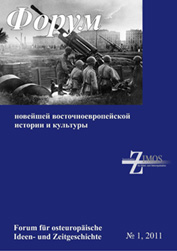Traditions, Transitions, Transfers – Conference on Baltic Studies in Europe, CBSE
Marburg, Germany
September 6-10, 2015
Deadline for submitting abstracts: December 31, 2014
We are pleased to announce the upcoming 11th Conference on Baltic Studies in Europe “Traditions, Transitions, Transfers”, September 6-10, 2015.
The Conference on Baltic Studies in Europe (CBSE) generally aims to bring together representatives of academic communities who share the interest of exploring the Baltic region from multiple perspectives and fields of research, because the Baltic region provides a particular historical, political, linguistic, social, cultural and ideological contact zone where the meanings of identities, languages and relationships are (re-)negotiated.
Every second year in between the conferences of the Association for the Advancement of Baltic Studies which take place in North-America, the Conferences on Baltic Studies in Europe (CBSE) invite scholars researching on Baltic topics to an European place in the Baltic States or where research on Baltic States is concentrated. The CBSE started in Scandinavia at the beginning of the 1970s and became a regular event in the 1980s. Since then, it unites several hundred scholars from different scientific fields who want to present and discuss their results of research with colleagues. After the collapse of the Soviet Union, scientists from the Baltic states have been able to participate. In 1995, the CBSE could, for the first time, take place in one of the Baltic states themselves (Riga, Latvia).
Why Marburg? Whereas the Herder-Institute’s work is generally focused on the history of the East Central European States, its archival collection focuses on the history of the Baltic, especially on Latvian and Estonian history. It contains the most important archival collections on the Baltic States outside themselves. The Department of History at Philipps-Universität Marburg addresses questions concerning problems of transition and transfer in a wider context, especially questions on security problems and foreign relations, while the Giessen Center for Eastern European Studies focuses on the transition of states as a whole.
Ten years after the entry to the European Union, we now want to discuss the challenges for societies which result from political and economic transitions and transfers, but which are rooted in traditions. Not only in the epochs of political changes, but also in all phases of political stability and hegemony, the people within the Baltic states experienced different crises which have become turning points for the political, societal, cultural, economical and environmental changes which challenged their societies to find new solutions.
Eligible topics
With regard to one of the fields of interest listed below, we invite scholars from all disciplines and stages in their careers to send a paper abstract as well as a panel (including information on prospective presenters and papers) and we invite young scholars working on PhD projects from all disciplines to send a poster proposition (via e-mail)
History
Memory
Visual cultures, Arts & Politics
Infrastructures, Urbanity
Environment, Resources & Societies
Narration, Translation & Transfer
Gender & Youth, Education
Representations: Citizenship and Social Movements
Geography & Space
Theologica Baltica: History of Religions and Confessions
Transition & Reconfigurations
Security & Violence
Knowledge & Media
Archives, Collections, Museums
Guidelines for submission
Stand alone papers and panel can be submitted on the conference website here.
Organizer
Herder-Institute for Historical Research on East Central Europe
Department of History of the Philipps-Universität Marburg
Giessen Center for Eastern European Studies (GiZO)
Information & contacts
Heidi Hein-Kircher
Herder-Institut, Gisonenweg 5-7, 35037 Marburg
e-mail: info@balticstudies2015.org













